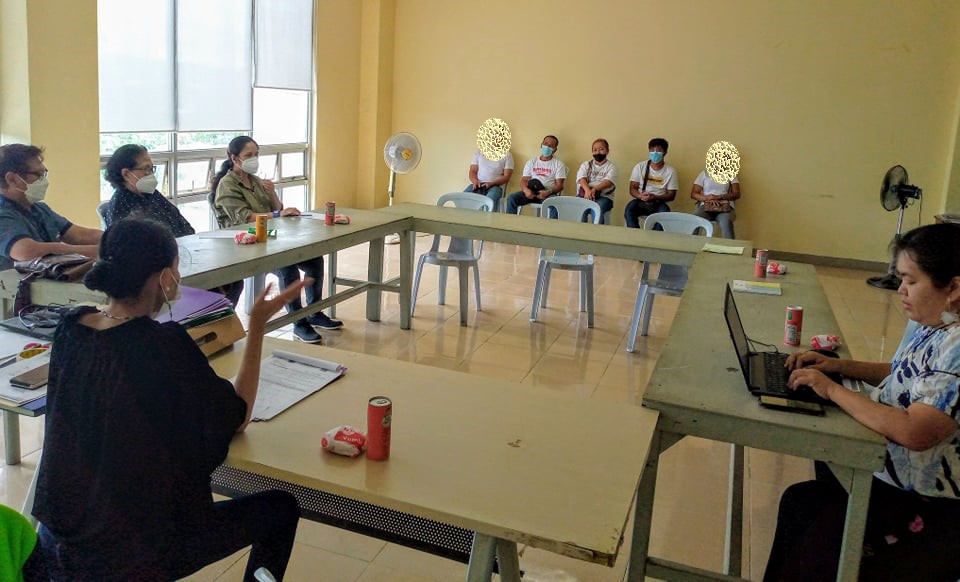City gov’t set out to offer a holistic Aftercare

The 18-month “Aftercare Treatment Plan” for the nine (9) Recovering Drug Dependents (RDDs) is now complete, with the goal of providing holistic recovery by improving the client’s physical, mental, and spiritual health.
Following recuperation, it is vital for an RDD to continue therapy and counseling. But achieving sobriety is a huge accomplishment. However, treatment for drug addiction does not end once a person has successfully reclaimed and withdrawn from drugs. Aftercare is a type of ongoing treatment provided to people recovering from drug addiction after they have achieved initial sobriety.
The RDD must enroll in the Aftercare program, which is a type of intensive outpatient rehabilitation services, after they are released from rehabilitation. Citizens who cannot afford to enroll in an aftercare facility or attend free aftercare sessions elsewhere benefit greatly from the local government’s free aftercare services.
The City Anti-Drug Abuse Council (CADAC) and the City Social Welfare and Development Office (CSWDO) have taken the lead in providing social services such as recovery trainings facilitated by the Aftercare Team from various offices such as the City Information Office, the City Legal Office, the CSWDO, and the NACPHIL, which provides Faith-based Counseling Sessions. Family Counseling, Parent Recovering Dependent Dialogue, and Psychological Services are also available from the team.
“The purpose of providing psychological counseling is to improve the clients’ positive attitude.” We also refer clients for additional psychiatric care if necessary. We conduct Narco-Urine Tests in collaboration with GOs, NGOs and other support services”, Aftercare Focal Person Nathalie Villanueva explained in an interview.
The Aftercare Team developed a holistic plan, intensive and less intensive structure program, and support group activities with the help of CSWDO case managers to provide the RDDs with a safe environment for continued support until it was no longer needed.
The Aftercare Treatment Plan is divided into three phases: Phase 1 (entry into the program), Phase 2 (intensive), and Phase 3 (continuing), which will end 18 months after the RDDs’ enrollment in the program.
During the intensive phase, all enrolled RDDs will go through a personality development orientation, personal grooming, and skill development to help them get a job. The RDDs will attend a “Livelihood Skills Training on Food Processing” in the fourth month of their enrollment to acquire livelihood skills.
A “Building and Repairing Relationships” seminar will be given to RDDs to help them learn how to manage their time. Seminars on “Healthy Lifestyle, Self-Esteem, and Empathy” are also on the list of seminars that they will attend.
RDDs will also participate in tree planting, recovery coaching, and bayanihan to help them develop self-discipline through community service. To improve their social functioning, they will attend a seminar on “Social Development, Engaging Sober Friends, and Social Support System.”
On the tenth month of their enrollment, they will be taught carpentry, driving, electrical and auto mechanic skills, among other things. The RDDs will go through some group dynamics and be taught stress management skills in order to learn how to cope with stress. Further, they will attend a seminar on “Understanding how people change and the stages of change.”
Meanwhile, the RDDs’ sobriety is a goal of the Aftercare Team. Meanwhile, in order for them to be aware of the negative effects of substances and to develop coping skills, they will attend a lecture titled, “Understanding the Negative Effects of Drugs and Emotional Management.”
The family, who play the most important role in the RDDs recovery process will also be empowered. A relational building and family interaction session will be held in the 15th month of their enrollment with the goal of strengthening family ties.
Also, the unemployed will be referred to any job placement agency in order to provide RDDs with job opportunities. A mental health group session will be conducted as part of the third phase.
On the other hand, as part of the termination phase, families of the RDDs will be engaged in a family dialogue in preparation for a long-term goal plan. The After Care team can help the family understand what they can do to take an active and positive role in the recovery of their family member. Family roles in addiction can be one of the strongest supports of recovery, when actions and interactions are healthy and positive.
After an evaluation of their performance, they will be discharged on the 18th month. A letter detailing the client’s progress and completion of the program will be submitted to the court, which will be an important factor in achieving their total freedom.
“RDDs must attend all sessions and activities for the next 18 months. If there is a valid reason for the absence, the team must reinforce the missing topic to be fed to the client. During graduation, the city government will provide a livelihood program in the form of start-up kit or cash capital for RDDs to start their own businesses,” Villanueva explained.
When RDDs begin to rebuild relationships with their loved ones and the community to which they belong, they begin to build hope, which will serve as a powerful source of motivation and inspiration for them to get sober, stay sober, and completely break the chain of addiction, which is the main goal of a holistic Aftercare program.